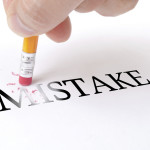Common Language Learning Mistakes and How To Fix Them With Lean Language Learning

You know how the saying goes - if you want to learn, learn only from the best.
But it doesn't mean that you have to focus on learning only from experts in your particular field of interest.
The beauty of the knowledge is that it gives the most amazing results when one field of science (or industry) encroaches on another.
Let's look at the automotive branch. Most of the companies in this sector have billion-dollar budgets. They have to make sure that every penny counts. In order to do so, they optimize the heck out of everything.
And I really do mean EVERYTHING. In the world, where one minute delay might be worth thousands of dollars, it is not that surprising.
And if multi-billion companies try to optimize everything, why wouldn't you?
After all, you have million dollars of ideas and knowledge in your head!
Let's optimize the language learning with Lean Management!
Lean Management in Language Learning
Lean management is an approach to running an organization that supports the concept of continuous improvement, a long-term approach to work that systematically seeks to achieve small, incremental changes in processes in order to improve efficiency and quality.
Essentially, lean is centered on making obvious what adds value by reducing everything else.
In the world of excess, concentrating only on essentials might seem difficult. And it is. But discarding all the unnecessary elements in your language learning routine might be a very liberating feeling.
The clutter has one intrinsic quality - it creates the feeling of being overwhelmed.
It's like being immersed in the deep waters of learning and choking on knowledge.
And you certainly do not want that. You want to be as stingy with your time and resources as the soulless capitalists who run the huge companies.
In order to do that you must grasp The Lean Language Learning.
7 Types of Waste In Lean Language Learning (aka the Common Language Learning Mistakes)
Managers at Toyota have come up with the seven types of waste:
Some experts tend to add an extra one:
Let's look at how you can reduce the aforementioned types of waste in language learning. Grab the shovel and start digging!
Overproduction - learning too many things at once
It's very easy to dive head-first into the ocean of grammar constructions and foreign words. It's also understandable, especially at the beginning. You are driven by enthusiasm! You want to absorb everything with your whole body!
But everything has its limits. Your memory as well. If you surpass them, you might find yourself overwhelmed by the ever-growing amount of cards and grammar constructions in ANKI.
Of course, the more you know, the easier it is to learn. What seemed to be an ocean at the beginning is merely a puddle as you progress.
Remedy:
Find the right amount of material you are able to learn every day. It might require some experimenting but it will allow you to find some balance in your learning. For example, you might choose to learn maximum 20 words and discard all the others.
Unnecessary traffic - incorrect learning plan or lack thereof
Most people who write to me regarding their problems with learning seem baffled when I ask them, "what is your learning routine/plan?". The question seems like an assassination attempt on their freedom. "Dude! I'm a free spirit, you can't tame me with plans!"
And that's the problem. Without any plan, you stagger from one grammar topic to another. From one list of words to another. It's hard to build anything permanent that way.
Usually, the most you can get is a hut made of bird crap and sticks.
Remedy:
Create a learning plan. Any plan. You don't have to write it down. I know I never do.
It doesn't even have to be good. Nor do you have to compose it yourself - you can always ask a tutor or more experienced learner for help.
But it will give you some guidance. You will stop wasting time by thinking, "what I should learn today".
Of course, what you need to know changes with time. And so will your learning schedule.
Waiting - not learning every day
I know you know that you should learn languages every day. But do you?
Many people fail to do it. In my opinion, it happens because they don't make language learning part of their lives.
If you don't learn regularly, you will start losing progress and forgetting things you have already learned. Imagine that you have spent 200 hours learning your target language and PUFF!
After a few months, you barely remember how to introduce yourself.
200 hours down the drain! You could have spent more time with your spouse. Or you could have watched TV Series.
But you wasted it! Shame on you!
If you don't respect your time? Who will?
Remedy:
Get into the habit of daily learning. Start with some minimum goal. Like, I don't know, 5 minutes? It's hard not to find 5 minutes to learn every day, right?
It's crucial that you make it impossible for yourself to fail. Once you discover that learning your target language for X minutes is child's play, increase the time. Try to always challenge yourself.
Transport and Inventory - getting too many language materials which you can't even use
Technology can be your greatest ally if you use it wisely. But the second you stop paying attention it may turn into your biggest enemy. If your hands start shaking uncontrollably wherever you hear about a new app or program, you know what I mean.
Hoarding dozens of websites and/or books won't help you with learning. The truth is that too big a choice can be paralyzing for your language learning productivity.
Remedy:
Try not to use more than 3-4 language learning resources. The chance is that you will never use more of them anyway. The only result of trying to do so is the feeling of being overwhelmed.
And if at some point in time you realize that you don't like one of them anymore, replace it with another resource.
Defects - trying to speak perfectly
Trying to get everything right from the very beginning of your language learning journey is the recipe for disaster.
Come to terms with the fact not very sentence which comes out of your mouth has to be perfect. Not every word has to be pronounced flawlessly.
I know it's hard to ignore the voices in your head which infect your thoughts with the feeling of burning shame.
But know this - it's more than enough if people understand you. You can work your way up from there.
Remedy:
Always try to identify and concentrate on the most important things first.
At the beginning, the most important things are the ones which allow you to express yourself in a way that is understandable to a native speaker.
Over-Processing
Over-processing in language learning means that you spend too much time processing a single piece of information. I'm probably the best example.
Years ago I used to underline every English which I wasn't familiar with. Then I wrote down all the meanings of this word from a dictionary. ALL of them! And all the related words.
You think that's all? Hell no. I also marked the most important sentences and idioms in colors. In short - I started rewriting a dictionary. If this isn't madness, I don't know what is. I wasted so much time that I would like to travel back in time and punch myself!
Remedy:
Make sure that whatever you do, you skip the unnecessary steps. Being busy is not the same as being efficient.
Waste of unused human talent
If you learn a language in total isolation, it's time you rethought your learning strategy. There are literally thousands of websites and communities where you can meet native speakers of your target language. Why not become friends with some of them?
Remedy:
Find somebody who you can talk to every day.
Final Words
Make sure to go through your language learning schedule and fix everything you can in accordance to these types of waste.
Which out of these mistakes is the most serious one? Let me know!
Done reading? Time to learn!
Reading articles online is a great way to expand your knowledge. However, the sad thing is that after barely 1 day, we tend to forget most of the things we have read.
I am on the mission to change it. I have created over 18 flashcards that you can download to truly learn information from this article. It’s enough to download ANKI, and you’re good to go. This way, you will be able to speed up your learning in a more impactful way.











Thanks for the article, I could notice that I was making most of the aforementioned mistakes.
My pleasure! Glad you found it useful 🙂
Though am a teacher I believe I have a limitation on grammar, so I need your help.
Hi Fasika! Please use the search bar to find all my articles on grammar! 🙂
Great stuff bro, thanks for sharing your thoughts with us.
My pleasure Nelson! 🙂
Thank you very much Bartosz, it is very healpful article, i am so glad you gave some excellent suggestions, thank you so much!
I am glad you have enjoyed it and thank you!
Thank you Bartosz, it is so easy to go into overwhelm these days on the internet, you gave some excellent suggestions, thank you so much! 🙂
You are very welcome! Thank you for your wonderful comment! 🙂
Thanks for the article Bartosz, even if we know what kind of mistakes we are making sometimes is good to see them all in one place to make yourself more clear about where can you improve.
Very true Anela! Thank you for your comment!
1. Making obvious what adds value by reducing everything else.
2. Choose to learn maximum 20 words a day and discard others.
3. Create a learning plan. Any plan.
4. Get into habit of at least 5 minutes daily learning.
5. Don’t use more than 3-4 language learning resources.
6. Being busy is not the same as being efficient.
7. You can meet native speakers of your target language.
Thank you for this great summary!
Very helpful article indeed. Thanks for sharing it.
You’re welcome! Thank you for your comment.